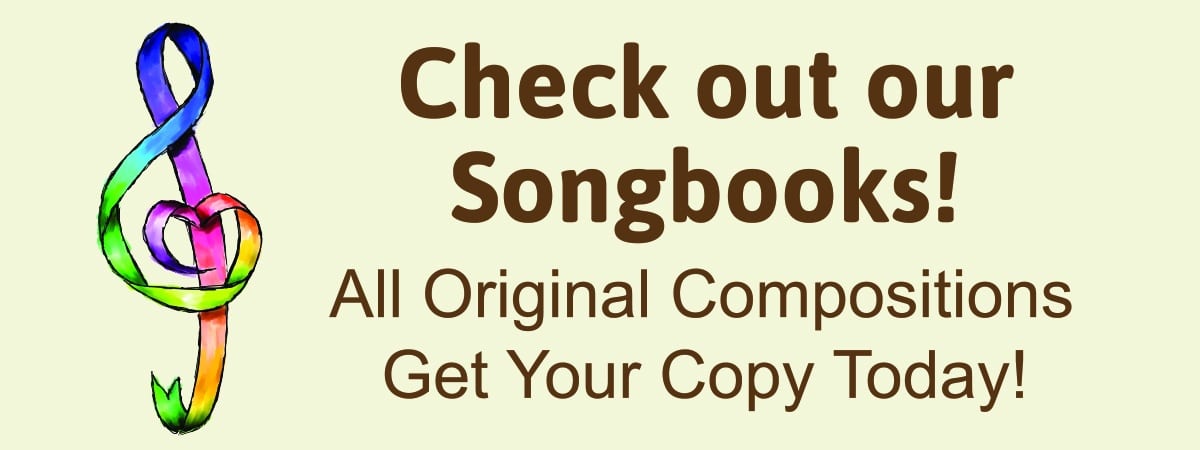Many of the children and some of the parents came to my school last night dressed in pajamas and carrying a pillow, stuffed animal and their favorite book. It was the annual Friday night pajama party celebrating a weeklong event known as ‘Parents as Reading Partners’ or PARP. During the week, the families pledged to read every day to their child. Each title was recorded on a paper heart, and sent back to school. By last night, the front lobby walls were crammed with hearts- a testament to the dedication and concern of our parents.
My school setting is fully integrated, and so we have children with all kinds of abilities and challenges. But the staff and families are committed to the importance of early literacy for every child. Developing print literacy, though, can be difficult when the child’s growth is impacted by disability. Cue the music!
How can music help? Here are some simple ideas.
- Engage attention through music. Sing a favorite or motivating song that will capture the child’s attention. For some this will be rhythmic, for some melody is key, and for some children harmony will be most important. Last night I began with the melody to “Twinkle, Twinkle” on the piano. There were about twenty children and many more adults in the room. Baskets of books were placed on the floor alongside comfy mats. As I began to play, I invited the children and parents to take a book and sit snuggled up to each other. The children were all looking toward me and the music as they recognized the familiar song. The parents stopped chatting among themselves and the whole auditory atmosphere of the room became calm and quiet.
- Pair positive music interaction with reading books. The sound of reading a book out loud has very unique qualities of inflection and timbre that fit well with music. Children’s books often incorporate rhythm, rhyme and repetitive structure. At the PARP party last night I gradually turned the children’s engagement in the familiar song toward engagement in the musical sound of their parent’s reading by using the melodic rhythm of the “Twinkle” song as the organizing background for the sound of the words. As the voices of the parents became stronger, the music became softer.
- Teach literacy skills through melody and lyrics. Learning to read requires a sequence of actions that can be taught. First recognize books as an object with specific meaning. Next explore and experience handling a book as different from the way you handle toys or food. Begin to see that pictures are not the same as words. Point to pictures and point to words. Hear the words; say the words; point to the words; understand the words; read the words.
- To find quick, practical thoughts about developing early literacy go to the web site for the early childhood advocacy group Zero to Three.
http://www.zerotothree.org/child-development/early-language-literacy/earlyliteracy2pagehandout.pdf
- Sing a book. Combining song lyrics and book text encourages children to become independent ‘readers’. There are many commercially available books that are set to music, and songs that are made into books. Because music supports repetition and practice, children can stick with reading long enough to gain mastery. Melodic rhythm can support the sentence grammar. Harmony and timbre can create an auditory environment that wordlessly explains the more abstract concepts and ideas of the book. Last night I ‘sang’ the book From Head to Toe by Eric Carle using a melody I had composed to fit both the words and the spirit of the book.
The American Music Therapy Association has recently published a new book on music and early literacy called The Sounds of Emerging Literacy by Dena Register, Jane Hughes, and Jayne Standley. It is available at http://www.musictherapy.org/bookstore/. Music therapists continue to research the relationship between music and literacy. Check out the AMTA journals for more information.
You can find more songs to support literacy in “You and Me Makes…We: A Growing Together Songbook”. We would love to hear some of the songs you have written about literacy or your comments about how you support family literacy through music.
Happy reading!
Beth
